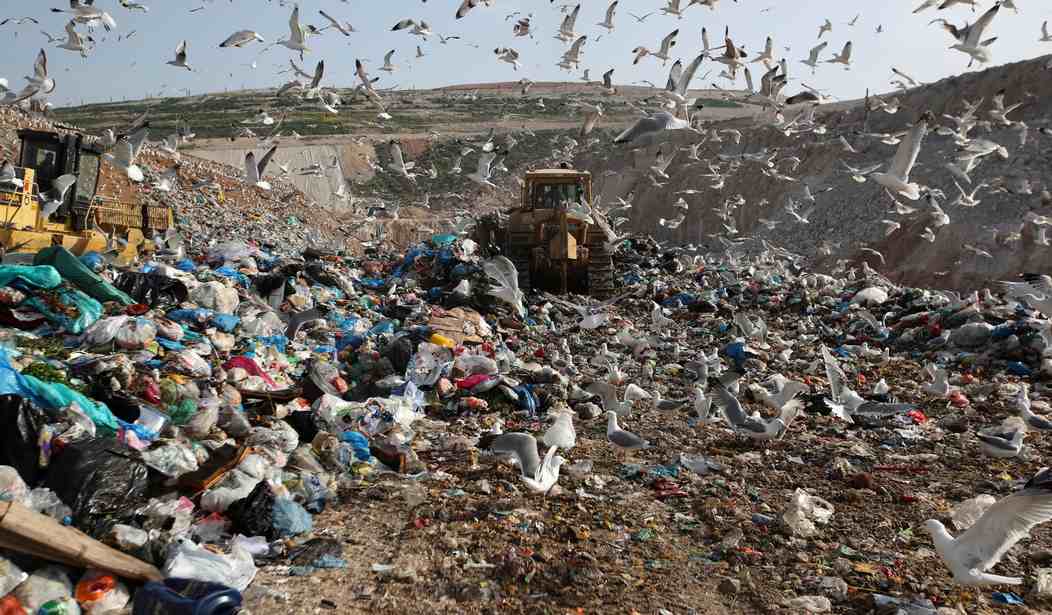When I was a child, my father -- former House Speaker Newt Gingrich -- was an environmental studies professor at West Georgia College in Carrollton. In 1971, our family spent the second Earth Day picking up trash from the side of the road. We often hiked, canoed and camped in the Okefenokee Swamp.
One of my earliest memories is of the "Keep America Beautiful" commercial, produced in 1970 for the first Earth Day. It portrayed what appeared to be an American Indian crying over the pollution that littered our country. Later, we found out the actor was neither an Indian nor really crying. But his message was real: We should take care of the land we inhabit.
While many might view this belief as liberal, I believe it's biblical. If you believe God created the Earth (which I do), and you believe that humans were entrusted to take care of God's creation (which I also believe), then the question of how we should interact with the environment becomes a question of stewardship. How do we best take care of the Earth, which was given to us by God?
If we take on this challenge of stewardship, we have to think about the best approach. When you are faced with a problem, how do you solve it? Do you solve it by subtracting and controlling, or by adding and incentivizing? Does the approach matter? I think it does. While it's human nature to attempt to control, this can lead to limiting options, limiting actions and negative results. Incentivizing and building on positive actions tends to provide more options, energy, possibilities and better results.
So, what does this mean for our environmental focus? Democrats are currently pushing the Green New Deal, which not only pushes government control as the solution but adds guarantees of basic income and health care coverage. From the Democrats' perspective, government is going to solve all our problems.
Recommended
"I understand the intellectual appeal of government control but recognize that it contains two key flaws," I write in my upcoming book, "Our Broken America: Why Both Sides Need to Stop Ranting and Start Listening" (Center Street, September 2019). The flaws: "(1) Government is neither efficient nor effective; and (2) When government attempts to overcome its inefficiencies, it does so by taking away people's freedoms."
So if the Democrats' approach of control is not the answer, what can we do to be better stewards of the earth? Last month, The Guardian's environment editor, Damian Carrington, described one possible answer in an article titled "Tree planting 'has mind-blowing potential' to tackle climate crisis." "Planting billions of trees across the world is by far the biggest and cheapest way to tackle the climate crisis, according to scientists," Carrington concluded. These scientists "have made the first calculation of how many more trees could be planted without encroaching on crop land or urban areas."
Their estimate was 1 trillion trees across the globe.
Carrington was referencing a study led by Jean-Francois Bastin of the Institute of Integrative Biology in Zurich, published in July by Science Magazine.
Titled "The Global Tree Restoration Potential," this study was based on a quantitative analysis that concluded tree restoration "is overwhelmingly more powerful than all of the other climate change solutions proposed," according to Thomas Crowther, a co-author also at the Institute of Integrative Biology.
"The research is based on the measurement of the tree cover by hundreds of people in 80,000 high-resolution satellite images from Google Earth," Carrington writes.
"Artificial intelligence computing then combined this data with 10 key soil, topography and climate factors to create a global map of where trees could grow." While the goal of 1 trillion trees to be planted worldwide may sound daunting, it also is inspiring, requires positive action and could have additive impact.
But don't expect this study to be quoted by Democratic candidates running for president. The tree planting could be carried out by individuals. The reality is that planting trees would reduce the carbon in the air, provide shade and beauty in the landscape and help mankind take a positive step toward becoming better stewards of the earth. That's a solution that interests me -- but one that may not interest those who are invested more in control than solutions.
























Join the conversation as a VIP Member